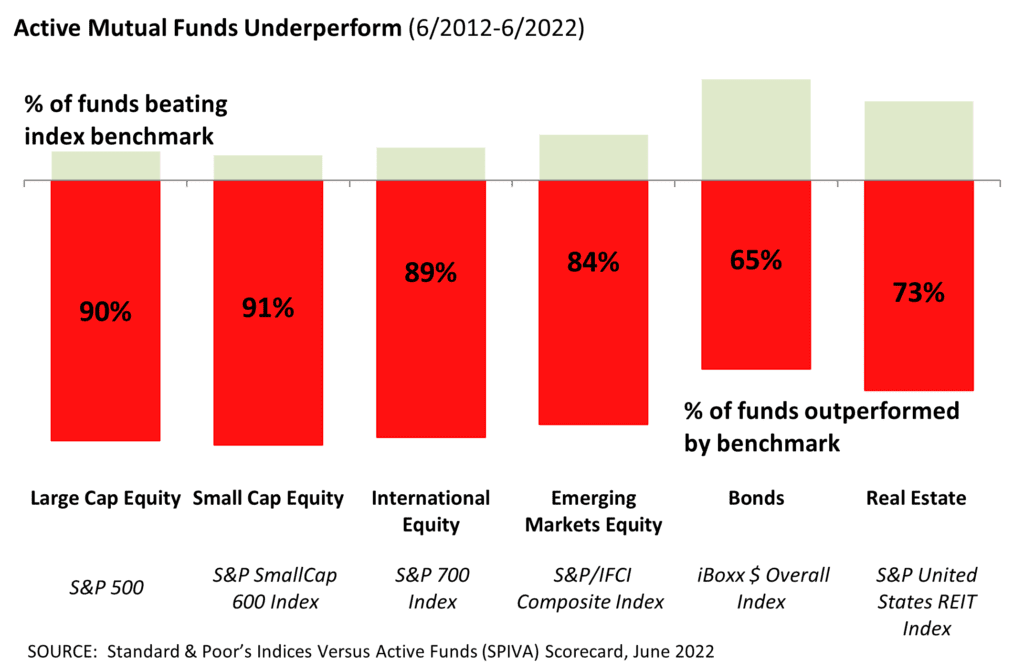Have you ever noticed that many financial salespeople are selling some story instead of quoting empirical studies (spinning stories vs. empirical studies)?
A bold prediction on the future price of gold, or a more subtle discourse on why Apple stock would be a good addition to your portfolio, they are all spinning a story.
The cable news channel CNBC fills airtime with money managers prognosticating on the future–often two talking heads at once with the opposite viewpoint.
All trying to convince you that they–the storyteller–somehow have better insight on the future than everyone else.
Remember, if you are buying, someone else is selling.
Just the Facts Please
Personally, I’m a numbers guy. Preference for empirical research and a testable invest approach.
I want an investment portfolio that benefits from the long-term growth of productive enterprises around the world. Investments diversified across asset classes. A portfolio with a level of volatility I’m comfortable with, so I will stick with it through market gyrations.
Stories vs. empirical studies, I pick studies.
Empirical Research
What this means is looking at history for what has tended to work in the past and, perhaps more importantly, what has consistently not worked.
Empirical studies tell us that:
- Most active money managers don’t beat their benchmark. You will generally earn a higher return investing in index funds than in actively managed mutual funds.
- A fund’s expense ratio is a statistically significant predictor of fund performance. The lower the cost, the higher the expected return. Control investment expenses by using low-cost index funds.
- Diversification is the only “free lunch” – by investing in a portfolio of diverse asset classes, it is possible to earn higher expected returns for a given level of volatility. Or craft a portfolio with lower volatility for a given expected return.

Numbers Guide the Way
When evaluating stock pickers, and the mutual funds they run, one of the big challenges is distinguishing between luck and skill.
The standard practice is to compare a fund’s annual performance to an appropriate market benchmark (e.g., the S&P 500 index for U.S. equity funds). Assuming a random distribution of returns, with absolutely no stock picking skill, half of actively managed mutual funds should beat their benchmark in any given year.
So, if a fund manager strings together 5 consecutive years of beating their benchmark, have they demonstrated exceptional skill or was it just luck?
Well, if they had a 50% chance of beating the benchmark each year, then to beat the benchmark 5 years in a row would only happen by chance about 3% of the time.
Unfortunately, with over 10,000 funds available, at any given time, hundreds of funds should have a streak of 5 winning years purely by chance. The problem is by the time you have enough historical data to believe a manager really has skill, it is probably too late.
Past performance is not a good predictor of future returns.
Of course, the other problem with active fund managers is that 50% of them don’t beat their benchmark. In a Standard & Poor’s study (SPIVA, June 2022), over a 10-year period, only about 10% of Large-Cap U.S. Equity funds were able to match or exceed the benchmark return after expenses (see chart above).
Tech Company 401(K) Plans
Luckily, for most tech company employees, their 401(k) plan trustees understand the benefits of low-cost index funds. One of the largest holdings in many 401(k) plans is a S&P 500 index fund.
Some examples:
- Apple 401(k) Plan: Vanguard Institutional 500 Index Trust (largest holding)
- Salesforce 401(k) Plan: Fidelity 500 Index Fund (largest holding)
- Microsoft 401(k) Plan: Vanguard S&P 500 Index Trust (2nd largest holding)
- Amazon 401(k) Plan: Vanguard Institutional 500 Index Trust (3rd largest holding)
A Good Story
Some people enjoy talking about stocks and sharing the latest hot tip or rumor. It can be fun to hear the stories and place bets. Get in on whatever the investment de jour is. Wager on the latest IPO or Microsoft’s upcoming earnings release.
That’s fine. You enjoy a good story and feel it keeps you in the game. I completely understand if that is how you choose to spend your money. It can be exciting. But is it sound investing?



Share Your Thoughts